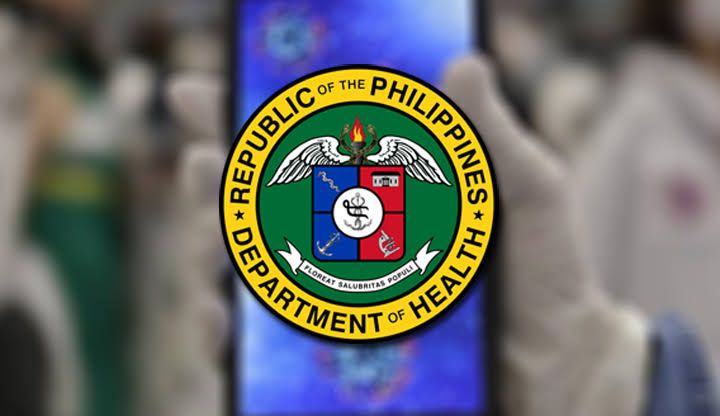'Tamang praning lang': DOH urges caution without panic amid mpox emergency
The Department of Health (DOH) on Wednesday, Aug. 15, underscored the importance of vigilance following the World Health Organization's (WHO) declaration of mpox (formerly known as monkeypox) as a "public health emergency of international concern."

“Palagi namin sinasabi sa public health, maging alerto (We always say in public health, be alert),” said DOH Spokesperson and Assistant Secretary Albert Domingo during a televised briefing.
“Tamang praning lang, wag masyado kasi para alam din natin kung ano ang gagawin natin para di tayo mahawaan o tayo ay makapag-ingat (It's okay to be cautious, but not overly so because this helps us know what actions to take to avoid infection or to be cautious),” he added.
Domingo emphasized that there are no recent cases of mpox in the country. “Wala pong kaso ng monkeypox simula December 2023 dito sa ating bansa (There have been no cases of monkeypox in our country since December 2023),” he explained.
The DOH recorded nine cases of mpox, with the last case detected in December last year.
Domingo reassured that all recorded mpox cases in the country have recovered with no deaths reported.
READ:
https://mb.com.ph/2024/6/9/doh-reports-no-mpox-deaths-in-the-philippines
Public health emergency
Domingo noted that this is the second time the WHO has declared mpox a public emergency of international concern (PHEIC).
The first declaration was in 2022, during the Covid-19 pandemic.
Mpox virus variants are classified as “Clades.”
Domingo explained that when mpox was first declared a PHEIC, it was classified as Clade II. This time, it has been classified as Clade I.
The specific subclade, Clade Ib, was the basis for the second PHEIC declaration.
“Ang Clade Ib ng mpox ay medyo mas mabagsik ng kaunti ang sintomas na nakikita pero ang mahalagang impormasyon ay hindi pa siya nakikita sa labas ng African continent (The Clade Ib of mpox has somewhat more severe symptoms, but the important information is that it has not been observed outside the African continent yet),” Domingo said.
On alert
Although there are no recent cases in the country, Domingo stressed that the DOH remains alert following the WHO’s announcement.
“Nakabantay ang DOH at ang buong gobyerno natin sa nangyayari ngayon sa international arena, wag po tayong mag-alala at magbibigay po tayo ng tamang impormasyon (The DOH and our entire government are monitoring the situation internationally, so please don’t worry. We will provide accurate information),” Domingo said.
The DOH also reported that the Bureau of Quarantine (BOQ) is alert regarding the mpox situation.
“Ang ating BOQ, walang dagdag na proseso pero ang sinasabi naming alert sila, siguro may additional na tanong o interview pagdating sa biyahero galing sa Africa at pati na yung papunta, kailangan may abiso dito (The BOQ has not added new processes, but they are on alert. There might be additional questions or interviews for travelers coming from or going to Africa, and they need to be informed),” Domingo added.
Understanding mpox is crucial to prevent unnecessary alarm, he said.
Domingo explained that mpox spreads through close physical contact, especially skin-to-skin contact. The incubation period varies from one to 21 days, with symptoms typically beginning as fever and rashes that may persist for up to four weeks. The virus becomes contagious two days before the onset of symptoms, specifically rashes.
“Walang gamot mismo sa monkeypox pero ang magandang balita, kusa itong gumagaling (There is no specific medication for monkeypox, but the good news is that it tends to resolve on its own),” Domingo said.
He also mentioned that there is no specific vaccine for mpox. “Walang bakuna mismo sa mpox (There is no specific vaccine for mpox),” he said.
In the US, Domingo noted that the smallpox vaccine has been "found effective" but is only administered to high-risk populations.
“Dito sa Pilipinas, hindi natin siya ibinibigay kasi mababa o wala nga tayong nakikitang load lately at kaya naman ng ating surveillance systems (Here in the Philippines, we do not administer it because the risk is currently low or nonexistent, and our surveillance systems are adequate to manage it),” he added.
Domingo emphasized the significance of maintaining proper hygiene practices, including frequent handwashing and wearing face masks while traveling, to prevent potential mpox transmission.
“Tamang impormasyon ang kailangan para alam ng ating populasyon kung ano ang gagawin (Accurate information is needed so our population knows what actions to take),” he added.
RELATED STORY:
https://mb.com.ph/2024/8/14/doh-on-alert-following-mpox-emergency-declaration-in-africa